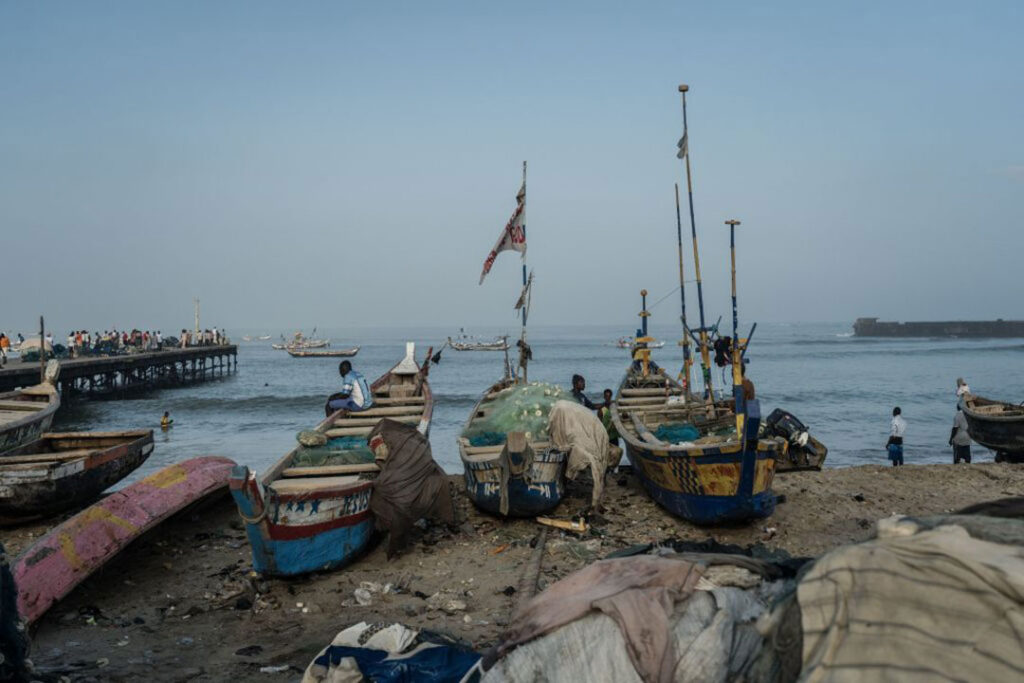ADF STAFF
The European Union in May issued Ghana a “yellow card” after concluding that the country’s level of development and engagement against illegal, unreported and unregulated (IUU) fishing was inadequate.
A yellow card is a warning that sanctions may be imposed if the country does not improve its efforts to halt IUU fishing, which has decimated Ghana’s small pelagic fish populations, such as sardinella, which have dropped 80% in the past two decades, according to the Environmental Justice Foundation (EJF).
The yellow card initiates a formal dialogue in which the EU and Ghana collaborate to solve issues of concern. If those issues aren’t resolved, Ghana could be issued a red card, meaning its fisheries products will be banned from the EU market, where most of Ghana’s fish are exported.
The yellow card has upset many who work in in Ghana’s marine fisheries, which support the livelihoods of more than 2.7 million people — almost 10% of the population. More than 100,000 fishermen and 11,000 canoes operate in the country, but there has been a drop in average annual income of up to 40% per artisanal canoe in the past 15 years or so, according to the foundation.
“We are not surprised at the yellow card warning issued to Ghana because the signs were clear on the walls that little was being done to stop IUU fishing in Ghana,” Nana Kweigyah, an executive member of the Canoe and Fishing Gear Owners Association of Ghana, told Ghanaian newspaper Daily Graphic.
To improve the situation, Kweigyah suggested that the government improve efforts to halt transshipment activities known as saiko. In Ghana, saiko often involves a trawler transferring its catch to a large canoe capable of carrying about 450 times more fish than an artisanal fishing canoe.
In 2017, saiko took 100,000 tons of fish from Ghanaian waters, costing the country millions of dollars in revenue and threatening food security and jobs, according to the foundation. Other examples of IUU fishing include use of smaller-than-regulated nets, fishing with chemicals and explosives, fishing in prohibited waters, catching juvenile fish and using lights to attract fish, which is known as “light fishing.”
Nana Joojo Solomon, an executive member of the Ghana National Canoe Fishermen Council, told Daily Graphic that the yellow card was a “clear sign that we need to sit up and do the right thing.” Solomon said all parties involved, including law enforcement agencies, should cooperate to end IUU fishing.
“It is against the law to engage in illegal fishing,” Solomon told Daily Graphic. “Our laws and international laws such as the United Nations Convention on the Law of the Sea have made it clear that we cannot use monofilament net for fishing, we cannot use light to aggregate fish during fishing; the laws frown on these.”
Francis Kofi Ewusie Nunoo, an associate professor at the University of Ghana, called on the government to ensure strict compliance with the 2014 National Plan of Action against IUU fishing.
“All sub-sectors in the industry such as the artisanal, semi-industrial and industrial, have all become culprits to the illegal practices, hence the need for the Fisheries Enforcement Unit to control all the illegalities,” Nunoo told Daily Graphic.

